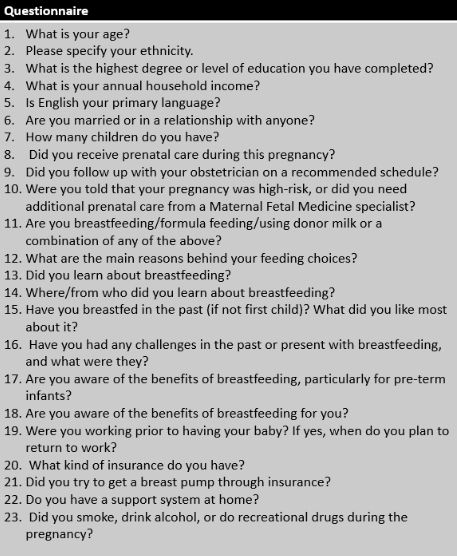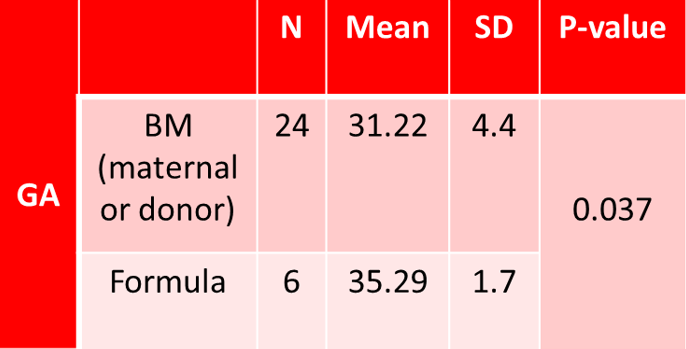Breastfeeding/Human Milk
Breastfeeding/Human Milk 1: Human Milk in the NICU
363 - Feeding Choices amongst Mothers of Babies in the Neonatal Intensive Care Unit
Publication Number: 363.101
- AK
Alla Kushnir, MD
Associate Professor of Pediatarics
The Children's Regional Hospital at Cooper
Camden, New Jersey, United States
Presenting Author(s)
Background:
National studies have shown that neonatal intensive care units (NICU) with a greater proportion of underserved populations have lower rates of breastfeeding and use of mother’s own milk (MOM). Despite the evidence that the use of MOM during the NICU stay is protective against associated comorbidities related to prematurity, Cooper University Hospital's NICU has a low initiation and continuation rate of feeding MOM.
Objective: Our aim is to determine the challenges for women of preterm neonates admitted to the NICU in initiating breastfeeding and the reasons for choosing not to express milk for their infant.
Design/Methods: In this mixed-methods study, mothers with pre-term deliveries participated in telephone interviews answering questions related to their feeding choices, as well as other factors that influenced their decisions to breastfeed or not. The primary outcome was to identify any maternal obstacles to the initiation of breastfeeding during the NICU stay of the baby. Questions evaluating deterrents to breastfeeding included family and cultural beliefs, as well as previous experience with breastfeeding and certain aspects of socio-economic status.
Results:
24 out of 30 mothers were able to provide their infants with breastmilk (maternal or donor), and 6 babies received exclusive formula. There was no association between maternal age and the choice to breastfeed a preterm neonate. Gestational age (GA) of the neonate was significantly related to maternal choice in initiating breastfeeding. Neonates who received some or exclusive breastmilk had a mean GA of 31 weeks, whereas those receiving formula only had a mean GA of 35 weeks (p < 0.04). Neonates receiving MOM were significantly older compared to neonates who received donor milk (34 weeks vs 27 weeks, p< 0.001). Mothers who denied using any substances, including tobacco or alcohol, had a higher rate of providing some or all MOM.
Conclusion(s):
Based on our study, gestational age of the neonate had an impact on whether mothers initiated breastfeeding and if babies received any breastmilk. In addition, mothers who denied substance use were more likely to breastfeed.

